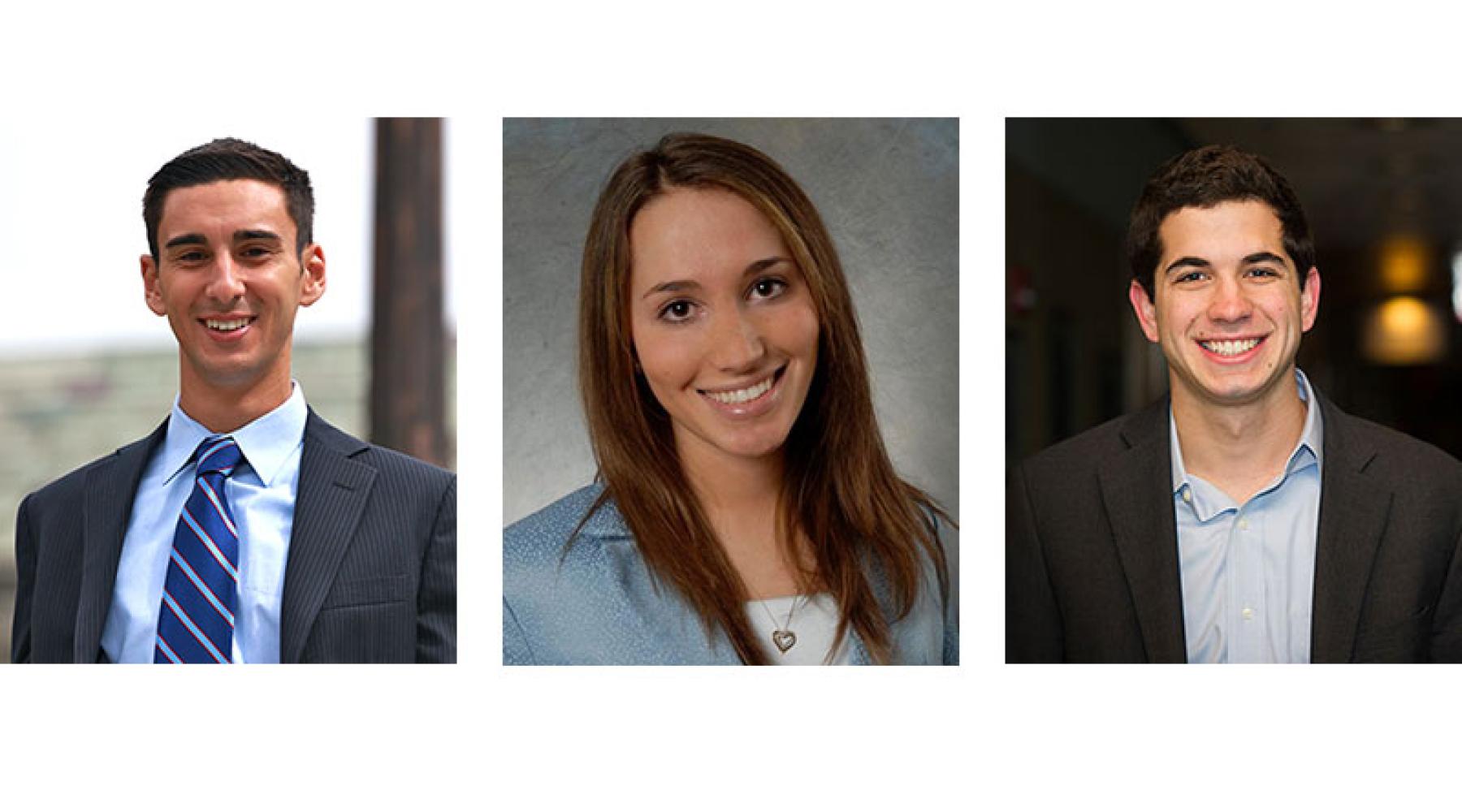
Senior Honors
Twenty ILR seniors graduate with honors Sunday for researching and completing a thesis during the past year.
The Cornell Board of Trustees, LGBT inclusion, democracy in the Arab Spring – these were among research topics defended this spring by honors students, who must have a GPA of 3.7 or higher to qualify for and remain in the two-semester, eight-credit program.
Three students shared their thesis journeys in interviews this month. They are:
Ross Gitlin '15 served as the undergraduate, student-elected trustee on the Cornell Board of Trustees, which has shaped his honors thesis.
“The inspiration [for my thesis] was my role on the board,” he said. “I have come to see how students across the country feel about certain issues and how impactful and effective they think they are in their role,” Gitlin said.
Under the advisement of Professor Ronald Ehrenberg, he gathered information on topics such as issues facing higher education, whether student trustees vote on their respective boards and the role of mentors for student trustees.
“One of the questions that we directly ask is: have you ever experienced a conflict of interest? … Surprisingly, not that many people responded that they had a conflict of interest. For those that did say that they had a conflict of interest while serving, it was generally for personal issues,” Gitlin said.
As far as the results of his thesis, Gitlin noted that his sample of 130 responses out of 250 potential responses fit a handful of hypotheses for the project.
Atticus DeProspo '15 worked to create more inclusive spaces for LGBT athletes at Cornell and shaped his thesis on this passion for minority inclusivity.
“My honors thesis is on LGBT inclusion in NCAA collegiate athletics using human resource analytics. … I want to use that survey to pilot it and refine it and use it ultimately to measure levels of inclusivity so that individualized action plans can be devised for specific athletic departments around the country to help them become more inclusive athletic communities.”
Under the supervision of Assistant Professor Beth Livingston, he created and refined a survey to measure LGBT inclusivity in NCAA athletic programs.
“With this first survey, I piloted it with the Cornell Athletic Department. I had over 600 respondents. … What I am now doing is using their results to see where the weaknesses are … and where we can make greater strides,” DeProspo said.
DeProspo is a founder of Cornell’s chapter of Athlete Ally, which looks to promote LGBT inclusivity in sports across collegiate campuses.
“I am a gay student-athlete on the men’s soccer team. I recognize that there is a need to make the Cornell athletic community more inclusive for LGBT individuals and along with other student athletes, we founded a chapter of Athlete Ally here at Cornell which looks to make it a more inclusive environment.”
Amy Frieder '15 embarked on her honors thesis, "The Fuse that Sparked the Arab Spring: The Role of Labor and Economic Issues in the 2011 Tunisian and Egyptian Revolutions," because of her interest in the Arab Spring and democracy struggles in the Middle East.
“My thesis aims to examine the relationship between the struggle for worker rights and the struggle for democracy during the Arab Spring, the role of the labor movement in mobilizing people for protests, and the importance of economic and labor-related issues in motivating the revolution,” Frieder said.
Her fascination with the Arab Spring came during high school when she took a History of the Middle East class, as well as watching events unfold in the Middle East.
“The onset of the Arab Spring was, for me, an exciting time that inspired me to want to learn more about the Middle East and struggles for democracy. … During [my] semester-long class – in the spring of 2011 – the revolutions were underway, Tunisia’s President Zine el-Abidine Ben Ali and Egypt’s President Hosni Mubarak were both ousted, Syria’s bloody civil war began, the United Nations imposed a no-fly zone over violent Libya, and the United States military assassinated al-Qaeda’s Osama bin Laden. I was studying the history of the Middle East while simultaneously watching it unfold,” she said.
Frieder said that her thesis process, under the supervision of Senior Lecturer Professor Lance Compa, was “a challenging, but very rewarding experience.”


